Spivak’s subaltern and Manipur
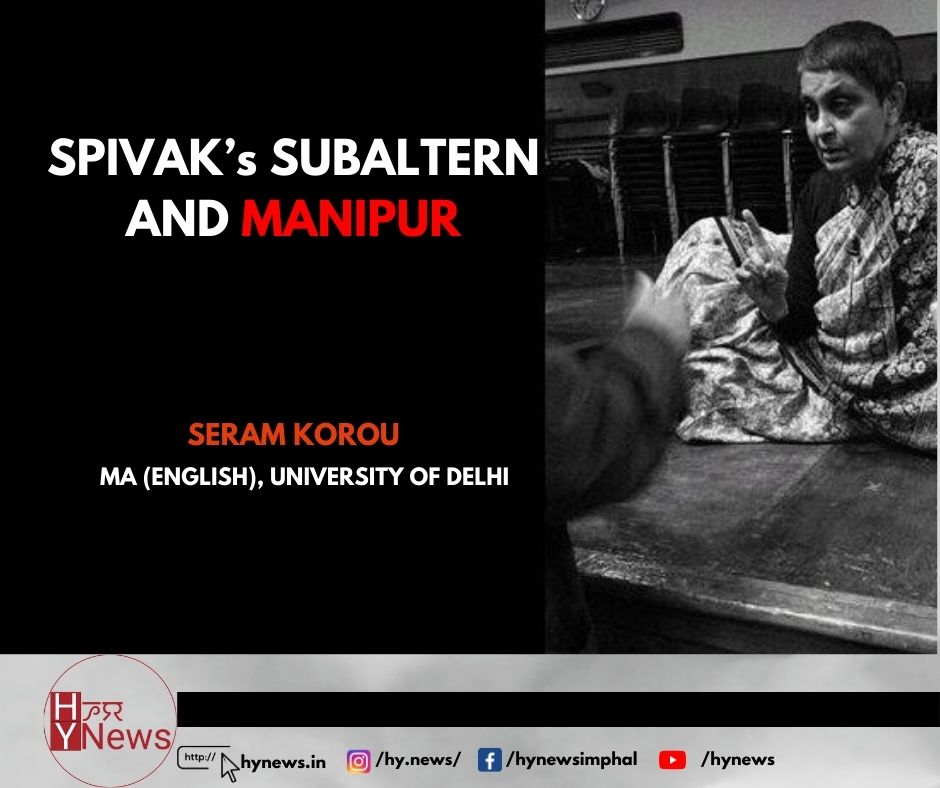
The term subaltern was strictly a military one during the 18th and the 19th century. it referred to the officers below the rank of a captain. It was Antonio Gramsci who first adopted the term with socio-political connotations in his article “Notes on Italian history” which appeared in his “Prison notebooks” written between 1929 and 1935. For him, the subaltern classes are basically any “low rank” person or group of people in a particular society who are dominated by a ruling elite class hegemony that denies them the basic rights of participation in the making of local history and culture as active individuals of the same nation. The groups Gramsci had in mind were the oppressed workers and peasants during the time of the National Fascist Party led by Benito Mussolini. He saw the subaltern consciousness and culture as a contra to the historical narrative of the State that serves the ruling classes, that renders them invisible and denies their existence. Gramsci writes in his prison notebooks, “The subaltern classes by definition, are not unified and cannot unite until they can become a State: their history, therefore, is intertwined with that of civil society, and thereby with the history of States and groups of States.” (Gramsci 1975). This means that the subaltern for him lives in ‘false consciousness and under the hegemony of the ruling class that blinds them from seeing the true material conditions of their existence. In other words, the subject’s interest and desire here aren’t united but conflict. They are being deceived by ideology. This very conflict in the subjectivity, this contradiction makes it possible for the emergence of ‘class consciousness in the subject.
Gayatri Spivak in her essay following the Marxist notion of subjectivity confronts the claims made by Gilles Deleuze and Michel Foucault in their 1975 interview popularly known as “Intellectuals and Power” regarding the oppressed subjectivity and the role of intellectuals. Deleuze and Foucault claim that representation has withered away and the figure of the intellectual has become transparent and its role is like a relay runner just passing the baton thereby dismissing the role of ideology in the formation of social relations. Foucault valorizes the masses as if they are not deceived by ideology or hegemony, “the masses know perfectly well, clearly… they know far better than [the intellectual] and they certainly say it very well.” Likewise, Deleuze says, “Reality is what happens in a factory, in a school, in barracks, in a prison, in a police station.” This new subject doesn’t correspond to the Marxist/ Gramscian subject that is contradictory. This new subjectivity where desire and interest are aligned is problematic for Spivak not only because it disregards the workings of ideology and hegemony but also because it puts on a facade of being universal. For Spivak, this universalization of a Subject particular to the conditions of Europe is problematic as it renders invisible the global division of labor; where the most intensive labor has gone to the former colonies. So, the assumption of a singular workers movement centered in Europe is flawed as it doesn’t take into account the experiences of the workers on the periphery. Spivak in the essay reconsiders the problems of subalternity keeping in mind the new historical developments of global capitalism and the global divisions of labor. She not only rejects the Deleuzian-Foucauldian subaltern Subject who can speak for itself but also the Gramscian assertion of the autonomy of the subaltern groups because this autonomy results in the homogeneity of the subaltern group and subaltern subjective identity, thereby forgetting altogether the heterogeneous working forces in the global periphery.
Spivak delves into the condition of gendered women during the colonial times in India to further formulate her notion of the subaltern. Spivak sees the subaltern in the sati women in colonial India. The sati subaltern subject’s voice is lost in a tussle between British humanist discourse calling for individual freedom and the Hindu tradition calling for voluntary participation in the ritual. While the former posits that, “white men [are] saving brown women from brown men,” the latter maintains that, “the woman wanted to die” (Spivak 1988). The voice of the Sati woman disappears when the two groups try to give her a voice. The Hindu woman “disappeared, not into a pristine nothingness, but into a violent shuttling, which is the displaced figuration of the ‘third-world woman’ caught between tradition and modernization (Spivak 1988). Thus, the subaltern subject is the one that cannot speak, that cannot represent itself.
Spivak’s endeavor to formulate the notion of the subaltern serves us some determiners of what actually constitutes the subaltern subject. Firstly, it invokes a key distinction between the oppressed and the subaltern. While the oppressed on the one hand is subjected to a historical narrative and has access to a revision of that narrative, the subaltern on the other lacks access to historical revision. To elaborate, Historical revisionism is basically the reinterpretation of a historical event or accounts which involves challenging the orthodox accounts of history. An example is De Bois’ “Black Reconstruction in America” which is the definitive revisionist text in African American history that revises history in many ways like overturning the notoriously racist Dunning School. Similarly, the Dalits in India who have been oppressed for so long till today have access to revisionist history; this is evident in the fact that various disciplines on Dalit studies are included in the academic curriculum today. However, unlike the oppressed, the subaltern doesn’t have the privileges of revisionist history. In this sense, the subaltern is an oppressed who is yet to be acknowledged. I think this discourse of the subaltern subject can be very essential in identifying the multiple and varying levels of oppression. One example I would like to bring up is the plight of the people of the so-called “northeastern” part of India, particularly Manipur who have been existing as sub-citizens since its annexation by the Indian Union. Laishram Malem Mangal writes, “The situation of Manipur from 1949 onwards has been that of an occupied territory followed by the ultimate annexation or incorporation by the Union of India in 1972. From the standards of international law and particularly under the legal order of the UN Charter and international humanitarian law, India’s continued unlawful presence in Manipur represents an illegal territorial regime with the intention to change the international status of the territory of Manipur as well as its government system and demographic characteristics.” He further continues in the latter part of the article,
“The cumulative effect of all the legislative and administrative arrangements of the Government of India since 1949 in the occupied territory of Manipur is that it has internalized the very issues of occupation and annexation by maintaining Manipur as an integral part of India within the normativity of Indian municipal legal system. The imposition of Indian laws to the occupied people of Manipur had the effect of changing their nationality from Manipuris to Indians. Prolonged unlawful occupation and subsequent annexation of territory while attracting rules of international law bring in political implications of a serious character especially on the lives of people of the annexed territory. Obliterating the sovereignty of a State through annexation by the occupying power tends to derecognize a people and their nationhood of its earlier historical existence as a politically independent entity while imposing a new sense of belongingness and allegiance to a foreign rule. The implication is that it carries with it the effect of extinguishing the national identity of the people of Manipur and their aspirations for independent statehood. Manipur continues to remain a territory under India’s occupation since 1949 notwithstanding the annexation by the latter in1972 in international law.”(Mangal)
It is evident from the above passage that the people of Manipur are still being subjected to a historical narrative of the Indian State and have no access to the revision of that orthodox history. Their voice hums but doesn’t sing loud enough to be heard by the angel of history. They are subaltern people. But the problem with the term is that it cannot have a rigid meaning since the socio-political dimensions differ from one collective to another, unlike the universalist façade of the European subject. This brings us to the second determiner of a subaltern identity; its flexibility and situational nature. Spivak talks about the subaltern identity as being “situational”. This problematic aspect can also be seen in the example discussed; the heterogeneous makings of the Manipur population with its different ethnic and religious minorities and genders that further complicate the notion of the term subaltern if it is to be applied directly without any proper analysis and meditation. And here Spivak provides a solution. Contra to the Deleuzian-Foucauldian intellectual that is transparent and serves as a relay runner for oppressed who can speak for themselves, what she calls for in her essay is the privileged intellectual to dive into the tangles of the heterogeneous social-political, and economic fabric and formulate the conditions of the truly subaltern(s) who cannot speak. Like the title and the subject of Walter Rodney’s book, “The groundings with my brothers”.
Works cited
Gramsci A (1971). Selections from the Prison Notebooks, edited and translated by Quintin Hoare and Geoffrey Nowell Smith. London: Lawrence and Wishart.
Spivak GS (1988). “Can the Subaltern Speak?” In Marxism and the Interpretation of Culture. Cary Nelson and Lawrence Grossberg (eds.). Urbana/Chicago: University of Illinois Press. Mangal M (2020). Annexation of Manipur as the 19th State of India: The Status of the Territory of Manipur in International Law since 1949 (scirp.org)
Note: Opinion express here is for the author's own.



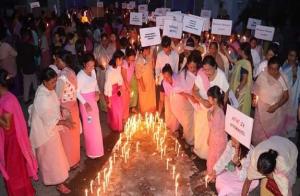



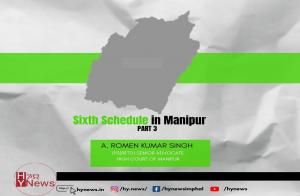
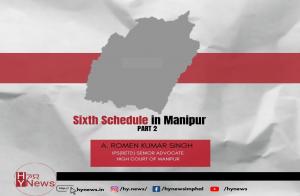
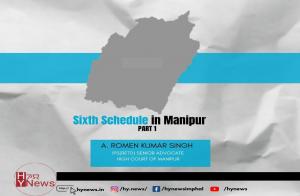











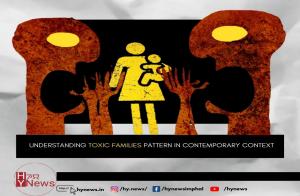

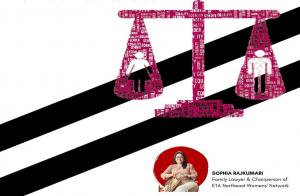






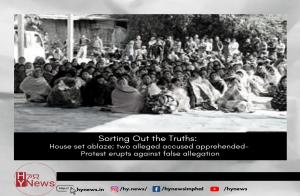





Leave Comments